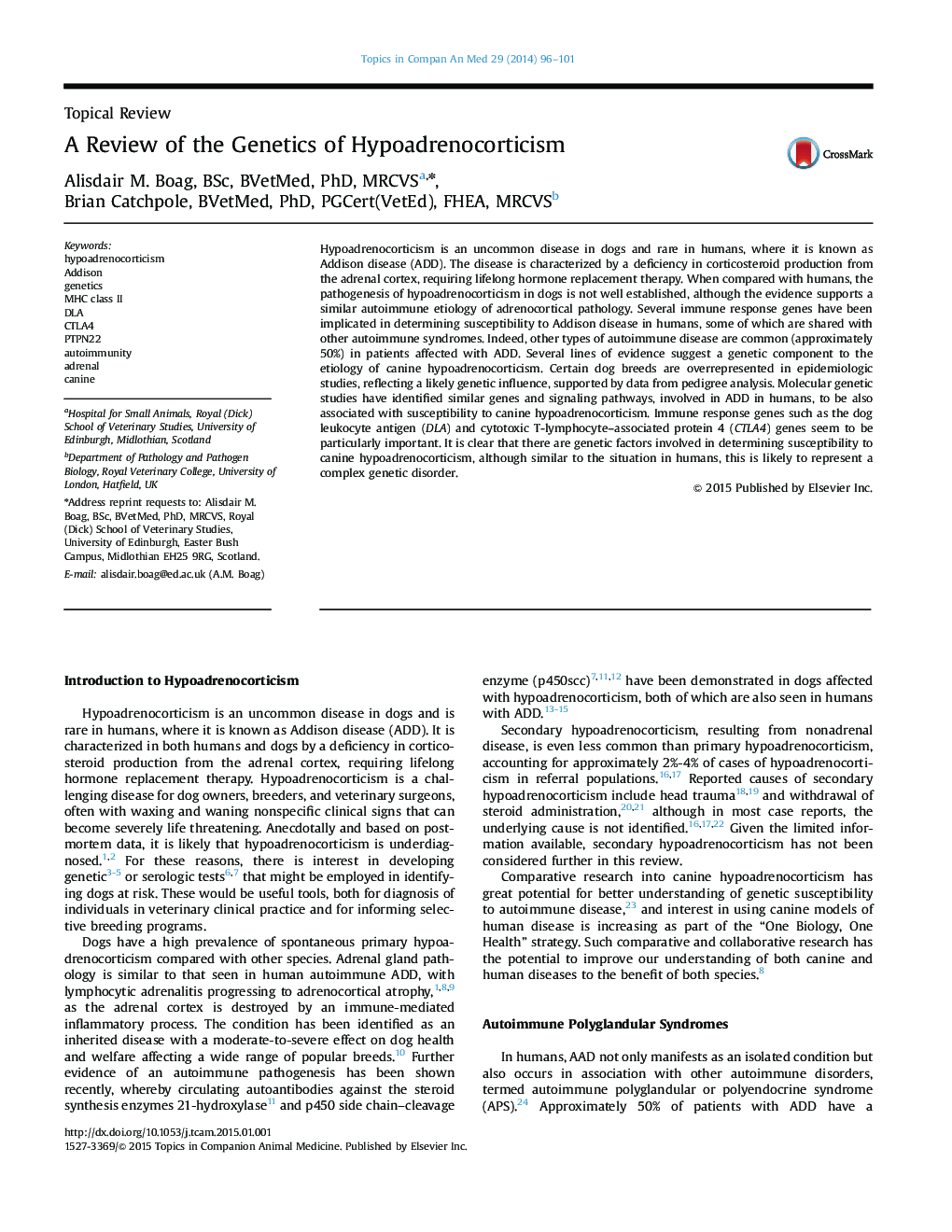| کد مقاله | کد نشریه | سال انتشار | مقاله انگلیسی | نسخه تمام متن |
|---|---|---|---|---|
| 2401089 | 1102173 | 2014 | 6 صفحه PDF | دانلود رایگان |

Hypoadrenocorticism is an uncommon disease in dogs and rare in humans, where it is known as Addison disease (ADD). The disease is characterized by a deficiency in corticosteroid production from the adrenal cortex, requiring lifelong hormone replacement therapy. When compared with humans, the pathogenesis of hypoadrenocorticism in dogs is not well established, although the evidence supports a similar autoimmune etiology of adrenocortical pathology. Several immune response genes have been implicated in determining susceptibility to Addison disease in humans, some of which are shared with other autoimmune syndromes. Indeed, other types of autoimmune disease are common (approximately 50%) in patients affected with ADD. Several lines of evidence suggest a genetic component to the etiology of canine hypoadrenocorticism. Certain dog breeds are overrepresented in epidemiologic studies, reflecting a likely genetic influence, supported by data from pedigree analysis. Molecular genetic studies have identified similar genes and signaling pathways, involved in ADD in humans, to be also associated with susceptibility to canine hypoadrenocorticism. Immune response genes such as the dog leukocyte antigen (DLA) and cytotoxic T-lymphocyte–associated protein 4 (CTLA4) genes seem to be particularly important. It is clear that there are genetic factors involved in determining susceptibility to canine hypoadrenocorticism, although similar to the situation in humans, this is likely to represent a complex genetic disorder.
Journal: Topics in Companion Animal Medicine - Volume 29, Issue 4, December 2014, Pages 96–101